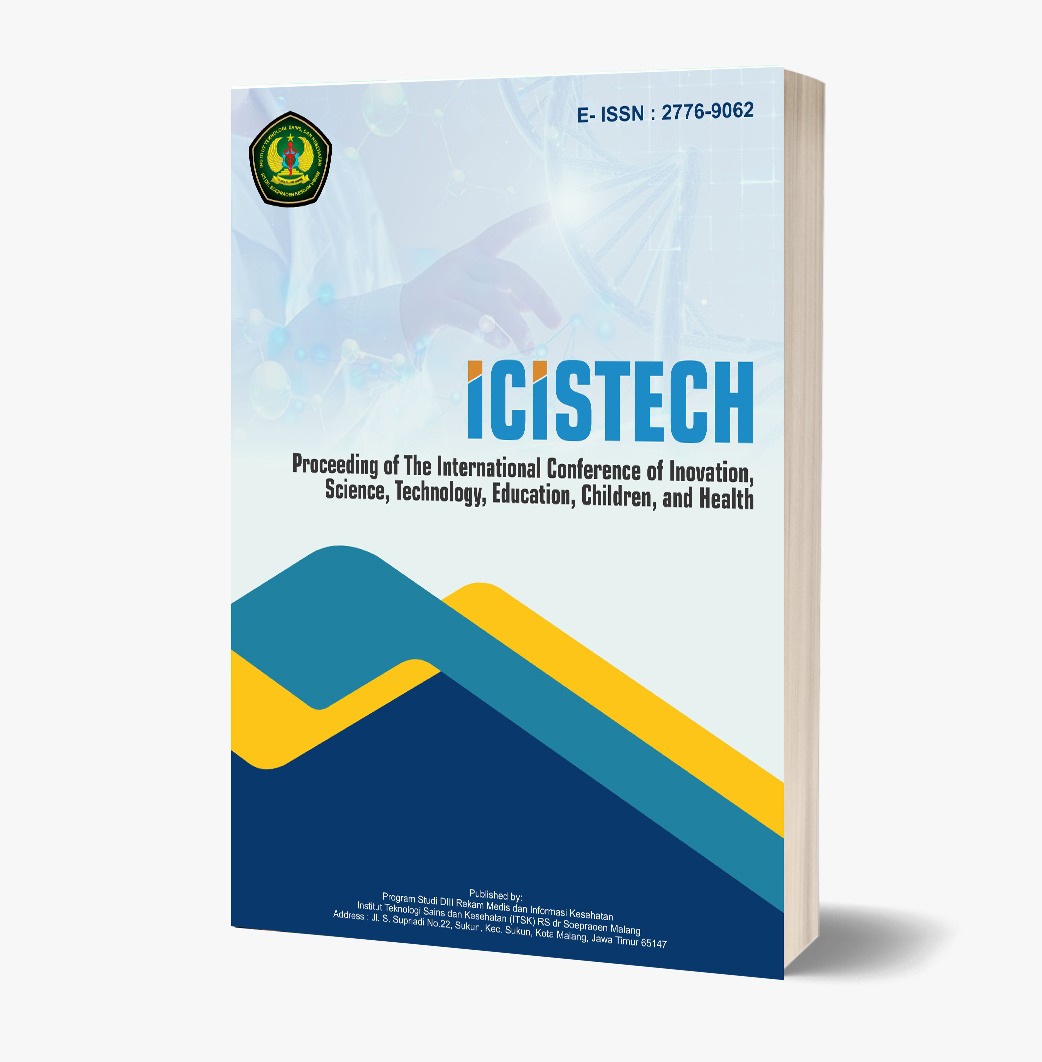The Role of Robotics in Enhancing STEM Learning for Young Learners
DOI:
https://doi.org/10.62951/icistech.v4i2.131Keywords:
Robotics, STEM Education, Hands-on Learning, Programming for Kids, EdTechAbstract
The integration of robotics in education is transforming the way students engage with STEM subjects. This paper explores the effectiveness of robotics in developing problem-solving, programming, and critical thinking skills in young learners. Case studies from various educational institutions demonstrate the positive impact of robotics-based learning in fostering innovation and creativity among children.
References
Alimisis, D. (2013). Educational robotics: Open questions and new challenges. Themes in Science and Technology Education, 6(1), 63–71.
Benitti, F. B. V. (2012). Exploring the educational potential of robotics in schools: A systematic review. Computers & Education, 58(3), 978–988.
Bers, M. U. (2018). Coding as a Playground: Programming and Computational Thinking in the Early Childhood Classroom. Routledge.
Bers, M. U. (2019). Beyond Coding: How Children Learn Human Values Through Programming. MIT Press.
Eguchi, A. (2014). Educational robotics for promoting 21st-century skills. Journal of Automation, Mobile Robotics & Intelligent Systems, 8(1), 5–14.
Kandlhofer, M., & Steinbauer, G. (2016). Evaluating the impact of educational robotics on pupils’ technical and social skills. Robotics and Autonomous Systems, 75, 679–685.
Kim, C., Yuan, J., Hill, R. B., Doshi, P., & Thai, C. N. (2015). Robotics to promote elementary education pre-service teachers' STEM engagement. Computers & Education, 91, 14–31.
Lin, C.-P., & Lin, Y.-H. (2021). The impact of educational robotics on students’ STEM self-efficacy: A meta-analysis. Computers & Education, 164, 104114.
Martínez, S. L., & Stager, G. (2013). Invent to Learn: Making, Tinkering, and Engineering in the Classroom. Constructing Modern Knowledge Press.
Mikropoulos, T. A., & Bellou, I. (2013). Educational robotics as mindtools. Themes in Science and Technology Education, 6(1), 5–14.
Nugent, G., Barker, B., Grandgenett, N., & Adamchuk, V. (2010). The impact of robotics and geospatial technology interventions on youth STEM learning and attitudes. Journal of Research on Technology in Education, 42(4), 391–408.
Papert, S. (1980). Mindstorms: Children, Computers, and Powerful Ideas. Basic Books.
Sullivan, F. R., & Bers, M. U. (2016). Robotics in the early childhood classroom: Learning outcomes from an 8-week robotics curriculum in pre-kindergarten through second grade. International Journal of Technology and Design Education, 26(1), 3–20.
Williams, D. C., Ma, Y., Prejean, L., Ford, M. J., & Lai, G. (2007). Acquisition of physics content knowledge and scientific inquiry skills in a robotics summer camp. Journal of Research on Technology in Education, 40(2), 201–216.
Wing, J. M. (2006). Computational thinking. Communications of the ACM, 49(3), 33–35.
Downloads
Published
How to Cite
Issue
Section
License
Copyright (c) 2024 Proceeding of The International Conference of Inovation, Science, Technology, Education, Children, and Health

This work is licensed under a Creative Commons Attribution-ShareAlike 4.0 International License.













